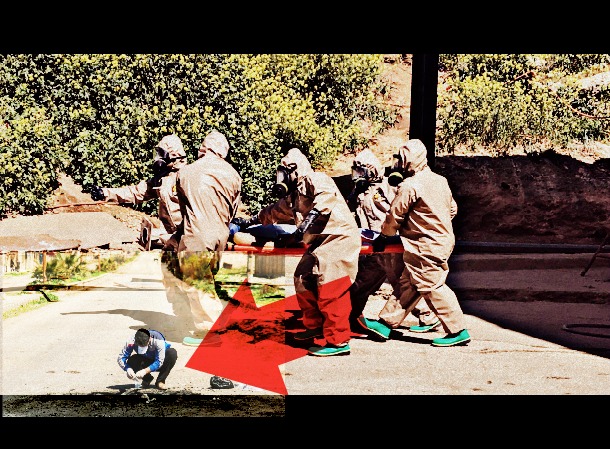
By Tim Hayward
The OPCW has analysed samples from Khan Sheikhoun in April containing what they have identified as ‘sarin or a sarin-like substance’. They know that much, even if they are not sure how it got there or who is responsible.
But how much actually is that? Throughout the OPCW report we find the cumbersome expression sarin or a sarin-like substance. Why not just sarin, pure and simple?
All a non-chemist like me can understand from this is that we are dealing with some nasty stuff, but there is no definite confirmation it is sarin pure and simple. Of course, a non-chemist also has no idea how impure a sample or how different a molecule would need to be to count as merely of a substance like sarin; nor would we know how much more impure or different it could be before becoming unlike sarin. So we non-chemists could easily be bamboozled in these matters.
One thing we do know is that the sarin the Syrian government produced and gave up for destruction in 2013 was referred to by all concerned as sarin, pure and simple. To produce sarin with military grade purity is not easy. To produce improvised versions, however, is within the capacity of insurgents in Syria.
Given that there are already open questions about motive, means and opportunity, as I indicated in my previous blog, then if there is doubt about even the weapon as well, the case for blaming Assad looks decidedly uncertain.
In fact, regarding the weapon, as I mentioned in the blog before last, the OPCW could not ascertain the method of delivery or therefore the ‘hardware’ used. So it becomes crucial for those who would prosecute a case against Assad to say that the chemical was one the opposition could not have had access to.
So crucial has it become that the UK’s Ambassador Adams has said it:
‘There is no evidence to suggest that any party to the conflict in Syria, other than the Syrian Government, has access to a complex nerve agent such as sarin.’
Still, just saying it does not make it true if the report you are relying on does not say it is true. And – it bears repeating – the OPCW does not say anything that clearly rules out the possibility of opposition responsibility for the incident.
It bears repeating because to accept the unsubstantiated claim as a pretext for sending more bombs, death and destruction against the people of Syria would be a heinous act.
Anybody who pronounces on the matter without striving to be scrupulously honest and clear about what they are saying will be complicit in that act.

Cartoon of Ken Roth of Human Rights Watch in relation to Rwanda genocide 1994
***
Tim Hayward is a Professor of Environmental Political Theory, founding Director of the Just World Institute and the Ethics Forum. Beyond Edinburgh I administer the Political Theory Email List, including its facebook page and am a founding member of the Britain and Ireland Association for Political Thought. This article was originally published at Tim Hayward’s blog.
READ MORE SYRIA NEWS AT: 21st Century Wire SYRIA Files
SUPPORT OUR WORK BY SUBSCRIBING & BECOMING A MEMBER @21WIRE.TV















